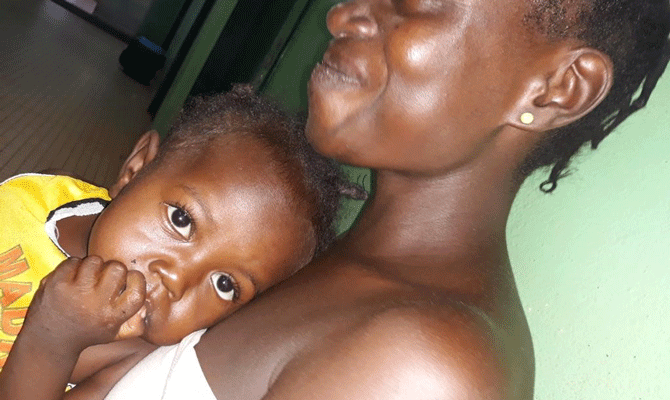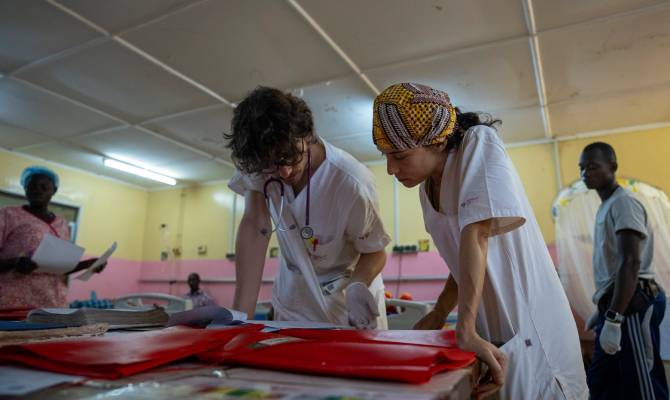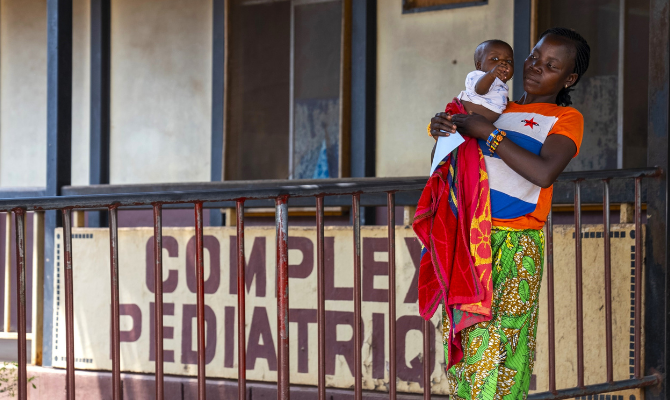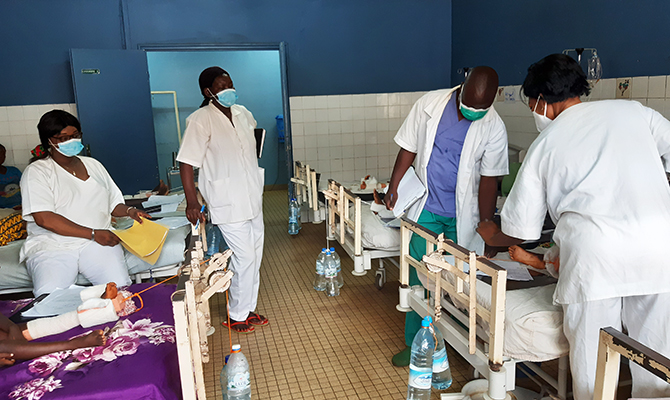We are in Bangui, where malaria is the main cause of death under five. Here is the testimony of Corinne, a CUAMM nurse.
«He is in a state of shock, his pulse is fast but weak, his large brown eyes are open but empty, he is breathing heavily and rapidly, he is pale, the conjunctivae of his eyes and the palms of his hands and feet are white; he is alert, with a very high temperature. We immediately take his vital signs, place oxygen, a cannula and carry out urgent blood tests. We soon discover that he is positive for malaria and has a very low haemoglobin, 2.4 gr/dl (normal values are 11-13 gr/dl). We immediately ask for a blood bag, explaining to the mother that she or someone in her family will have to donate blood if she wants to save her baby. Blood is scarce in Africa, so it is important to raise awareness of the importance of donating “because one day you might need it too”».
Corinne, a CUAMM nurse in Bangui, tells us the story of Espoir, an almost two-year-old boy, who arrives at the Complexe Pédiatrique in his mother’s arms, in tears, because the little boy does not react. In the Central African Republic, malaria is the disease with the most serious impact on the population and still the main cause of death in children under five. In the rainy season, the transmission rate increases significantly and the disease becomes more deadly.
«The mother is frightened, explaining that a few months ago she lost a four-year-old boy in the same condition. We try to reassure her and explain that we will do everything possible to save her son. There is no time to lose. While waiting for the blood, we give him the antimalarial drug, an antibiotic and an antipyretic; we keep him on an IV to stabilise him. Finally, the transfusion arrived and we mounted it immediately. The fever came down and after a few hours Espoir started to react, he cried and latched on to the breast; this is always a good sign. He will remain in the observation room until the next day and will be transferred to the ward for another five days, before being discharged with a 48-hour follow-up.
Espoir in Italian means hope, which we must never lose! Espoir is one of the lucky few who have made it. For those who work in this context, if even one little sick person makes it, you receive a great strength that confirms the choice you have made and the conviction that you could not be anywhere else.
Awareness-raising campaigns are under way in Bangui’s neighborhoods and suburbs, with the help of community leaders, in the “centre de santé” and through radio spots, explaining the importance of using mosquito nets, of taking the child immediately to a health centre or to the Complexe pédiatrique in case of symptoms such as fever, asthenia, paleness or convulsion. In this hospital that we support, health education and awareness-raising also play a fundamental role and are carried out on a daily basis. Trained staff travel around the hospital to raise awareness among mothers about malaria and its prevention. A commitment that can never be lacking».





